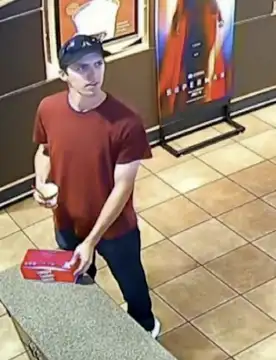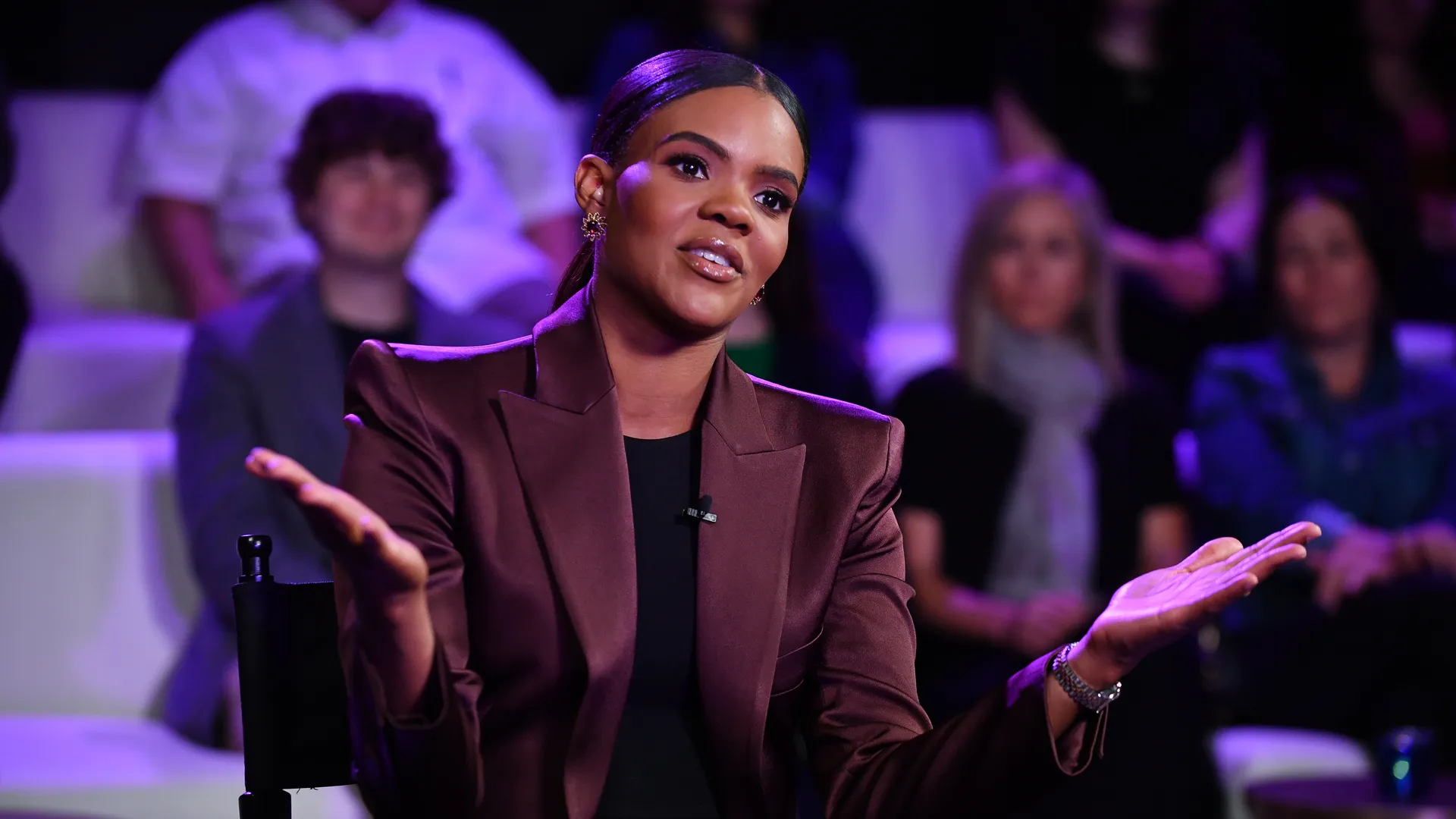Conservative commentator Candace Owens has reignited debate over the death of Turning Point USA founder Charlie Kirk by circulating what she claims is new evidence linked to the alleged shooter.
Earlier this week, Owens posted to social media and later addressed the matter on her podcast, presenting an image she alleged showed Tyler Robinson—the 22-year-old accused of killing Kirk—at a Dairy Queen in Orem, Utah, just hours after the September 10 shooting at Utah Valley University.
Owens claimed the photo, which quickly went viral online, was timestamped at 6:38 PM, placing Robinson at a fast-food restaurant roughly 15 minutes from the UVU campus. Kirk was fatally shot shortly after noon during a campus debate, making Owens’ allegation one that—if proven—could complicate the official narrative of Robinson’s actions following the killing.
The Photo in Question
The photo depicts a young man in a maroon t-shirt and baseball cap standing in line inside a Dairy Queen. His face is partially obscured, leaving room for doubt about whether it truly shows Robinson. Owens insists the man is the suspect, pointing to similarities in height, build, and clothing.
“This picture completely destroys the media’s story,” Owens said in a viral Instagram reel. “We were told Robinson went into hiding, terrified, but here he is casually grabbing ice cream hours later. What are they not telling us?”
Law Enforcement Response
Officials in Utah have not confirmed the authenticity of the photo. The Orem Police Department told reporters they are “aware of the circulating image” but have not verified whether the man in the picture is Robinson.
Prosecutors have already filed multiple charges against Robinson, including aggravated murder, obstruction of justice, and unlawful possession of a firearm. They announced their intent to seek the death penalty earlier this week.
When pressed about the Dairy Queen photo, the Utah County District Attorney’s office declined to comment directly, stating only that “the case will be tried based on evidence admissible in court, not speculation online.”
Online Reactions
The image and Owens’ claims quickly went viral, spreading across Twitter (X), Instagram, and conservative forums. Some users echoed Owens’ skepticism of the official narrative, while others accused her of spreading misinformation without solid proof.
Critics highlighted that Owens has previously circulated unverified claims, warning that this latest post could interfere with the ongoing legal process.
“Candace Owens has a history of pushing half-baked theories into the spotlight,” wrote one political analyst on X. “This Dairy Queen photo could be anyone. Without confirmation, she’s muddying the waters.”
Others, however, argued that Owens was simply raising valid questions. “Why would law enforcement ignore this photo? The public deserves transparency,” one supporter posted.

Broader Implications
Owens’ intervention has drawn attention to the broader debate over how information—verified or not—spreads after high-profile crimes. Experts warn that such viral claims can shape public perception long before evidence is examined in court.
“This is the problem with our digital media landscape,” said Dr. Sarah Martinez, a media studies professor at NYU. “An influencer with millions of followers can frame a narrative instantly. Even if it’s later disproven, the impression sticks.”
What Happens Next
Robinson remains in custody as he awaits trial. Prosecutors have described the case as “straightforward,” citing eyewitnesses, security footage from the university, and ballistic evidence tying him to the shooting.
Still, Owens’ claims—and the viral photo—have ensured the case will be watched closely not only in the courtroom but also in the court of public opinion.
For now, authorities urge caution. “This is an active investigation,” said Orem Police Chief Gary Giles. “We encourage the public to be patient and rely on confirmed information.”

James Jenkins is a celebrated Pulitzer Prize-winning author whose work has reshaped the way readers think about social justice and human rights in America. Raised in Atlanta, Georgia, James grew up in a community that instilled in him both resilience and a strong sense of responsibility toward others. After studying political science and creative writing at Howard University, he worked as a journalist covering civil rights issues before dedicating himself fully to fiction. His novels are known for their sharp, empathetic portraits of marginalized communities and for weaving personal stories with broader political realities. Jenkins’s breakout novel, Shadows of Freedom, won national acclaim for its unflinching look at systemic inequality, while his more recent works explore themes of identity, resilience, and the fight for dignity in the face of oppression. Beyond his novels, James is an active public speaker, lecturing at universities and participating in nonprofit initiatives that support literacy and community empowerment. He believes that storytelling is a way to preserve history and inspire change. When not writing, James enjoys jazz music, mentoring young writers, and traveling with his family to explore cultures and stories around the world.









